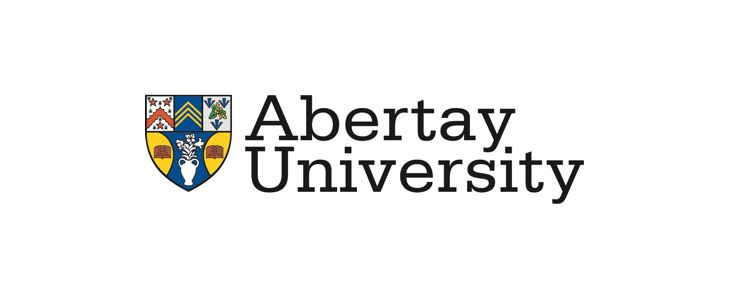Abertay University: Scottish boxing world champions get out of the ring and into the lab for Abertay University training study
Two of Scotland’s most successful boxers are working with Abertay University sports scientists on new fitness and performance analysis techniques with the potential to improve the sport’s traditional training regimes.
World Boxing Association (WBA) and International Boxing Organisation (IBO) double-title holder, Hannah Rankin and World Boxing Council (WBC) silver title holder, Dean Sutherland are both taking part in research projects that aim to improve their individual training programmes, while also exploring, for the first time, the impacts that pad work, bag work and sparring can have on boxers’ bodies.
Led by PhD researcher Andrew Usher, the studies at Abertay University’s labs in Dundee are investigating the physiological demands of training in the sport at professional level, while also providing the athletes with personalised performance plans.
As part of Sutherland’s regime, Usher is conducting a world-first research project that takes a deep dive into the physiological underpinning of boxing.
For the first time, each of the core training components that most boxers undertake – pad work, bag work and sparring – is being analysed in the lab in a bid to better understand the impact these techniques have on the body.
This involves using Near Infrared Spectroscopy (NIR) as a non-invasive way of measuring muscle oxygenation levels whilst athletes undertake commonly applied training methods.
Rankin has also undergone Windgate Testing which uses a special bike to measure anaerobic power and has had her movement analysed using Abertay’s newly installed motion capture camera rig, recording in high definition around 360 degrees.
Historically it’s been very difficult to obtain physiological data in boxing, particularly in sparring due to the nature of the sport. However, with technology like NIRs Abertay’s scientists can now obtain important data on how muscle tissue functions and recovers.
This helps to ascertain a physiological profile of each training method and allow the team create ways to optimise training and performance.
Throughout this on-going project, Usher intends to use the research information to adapt training interventions into Sutherland’s regime, which are already having some effect.
Usher hopes once the full data has been collected these interventions can be used more widely throughout the sport.
Rankin is also utilising the expertise of Usher to enhance her performance and ensure her body is in optimal condition for fight nights.
The work she has undertaken with Abertay has focussed on using sprint interval-based training modalities developed at the University to supercharge her recovery during and between rounds, which will boost her stamina.
Since working with Abertay, Hannah has become a firm believer in data-driven training and performance and believes this type of approach is crucial to boxing success and the development of the sport.
Abertay academics Dr John Babraj and Dr Ashley Williams of the University’s Division of Sport and Exercise Sciences are supporting the research.
Usher said: “Having access to two elite boxers for this work has been fantastic and I’m delighted that we’ve been able to enhance their training and performance, while also gathering the data we need for the studies. For generations, boxers have trained using the same tried and tested techniques, and while there’s no doubt that these are successful and will continue to be used, we want to better understand if there are ways to improve them, or the frequency of their use, by analysing the impact they are having on our professionals. Having access to Abertay University’s facilities and the support of their academic team has been crucial to our project and we are already seeing the benefits of working collaboratively in this way.”
Rankin, who will defend her WBA and IBO belts against Mexico’s Alejandra Ayala at the Braehead Arena on 13 May at the OVO Hydro in Glasgow, said: “It’s rare to be able to access this type of top tier lab analysis in women’s boxing, so it’s been a real boost to work with Andrew and the Abertay University team. At the level I’m competing at now, any edge I can gain in my training is going to have a positive benefit in the ring, so to have the opportunity to do this kind of analysis work is really worthwhile and plays an important part in my preparations.”
Sutherland added: “Getting into the lab gives me time and space to take a real, in-depth look at my performance and a data set that can help me drive improvements. I take anything that can advance boxing training techniques as a positive and being part of this study has given me a fresh perspective on some of the things I had been taking for granted over the years.”
Dr John Babraj added: “We’re delighted to be supporting this research project, which of course has benefits for the athletes themselves, but also gives our students a chance to gain experience with elite-level sportspeople. By introducing analysis and research into these boxers’ regimes, we can help them change or adapt their bodies and their approach, but also give them an added confidence boost of knowing they have hours of lab work backing up their training.”

